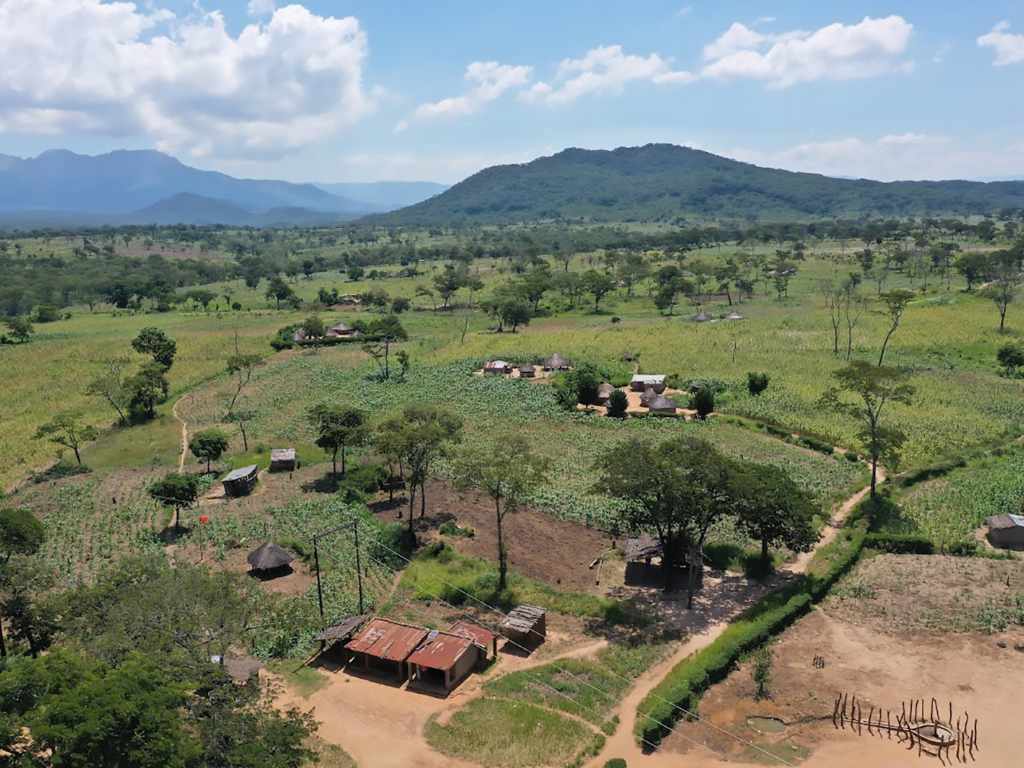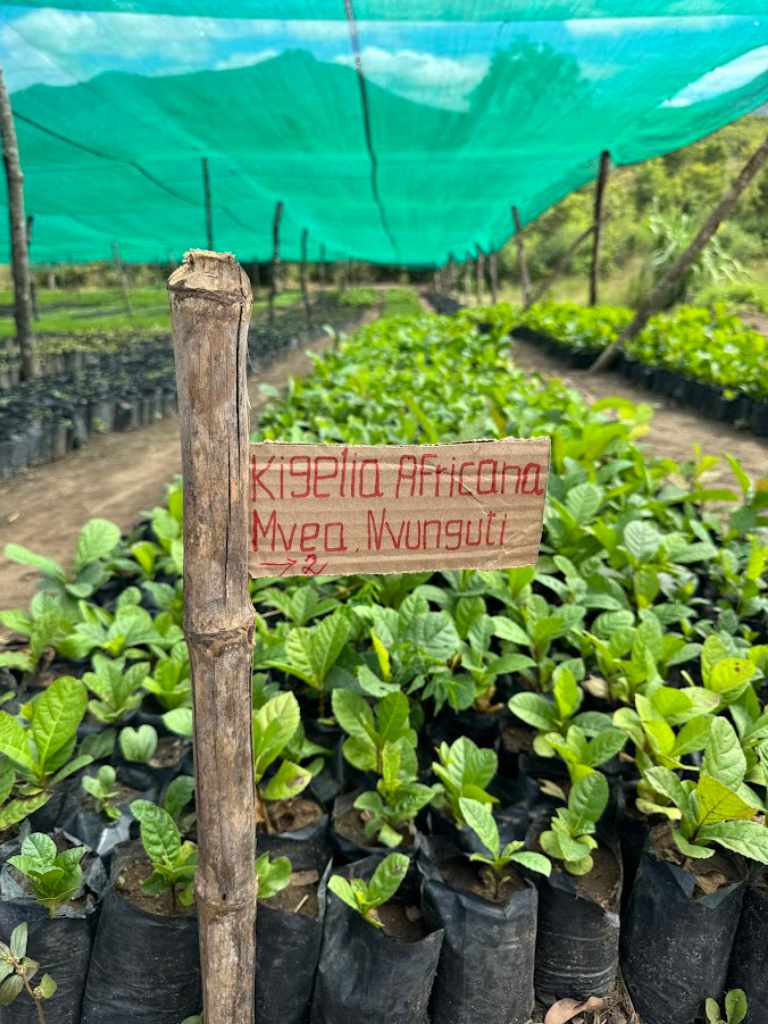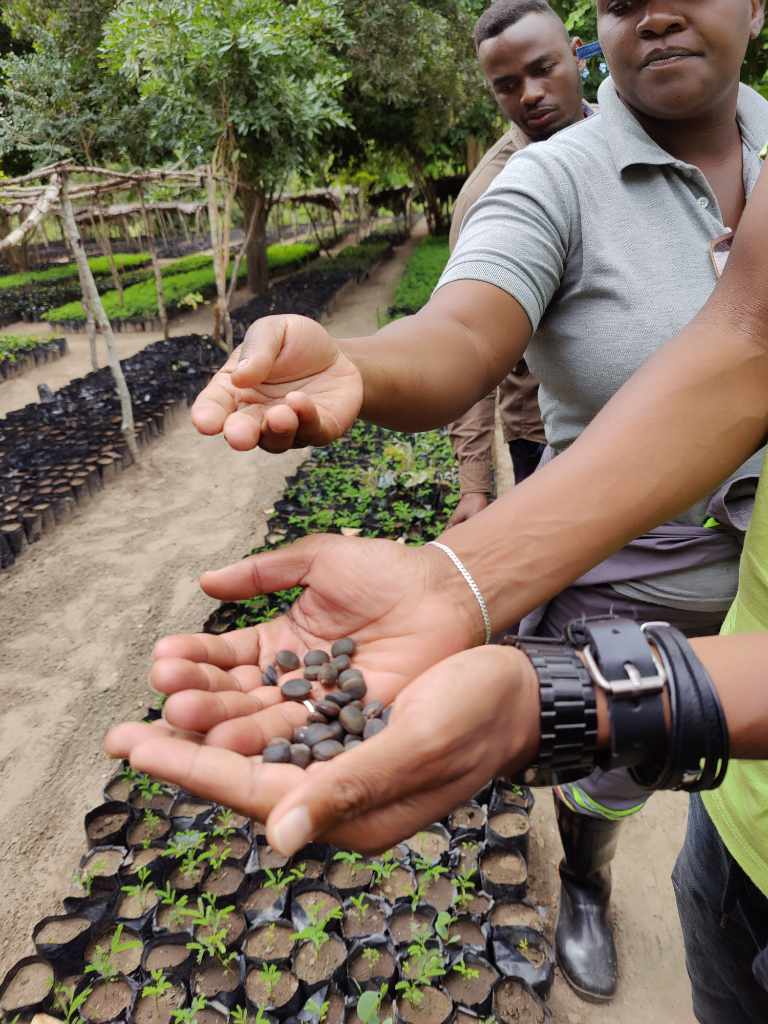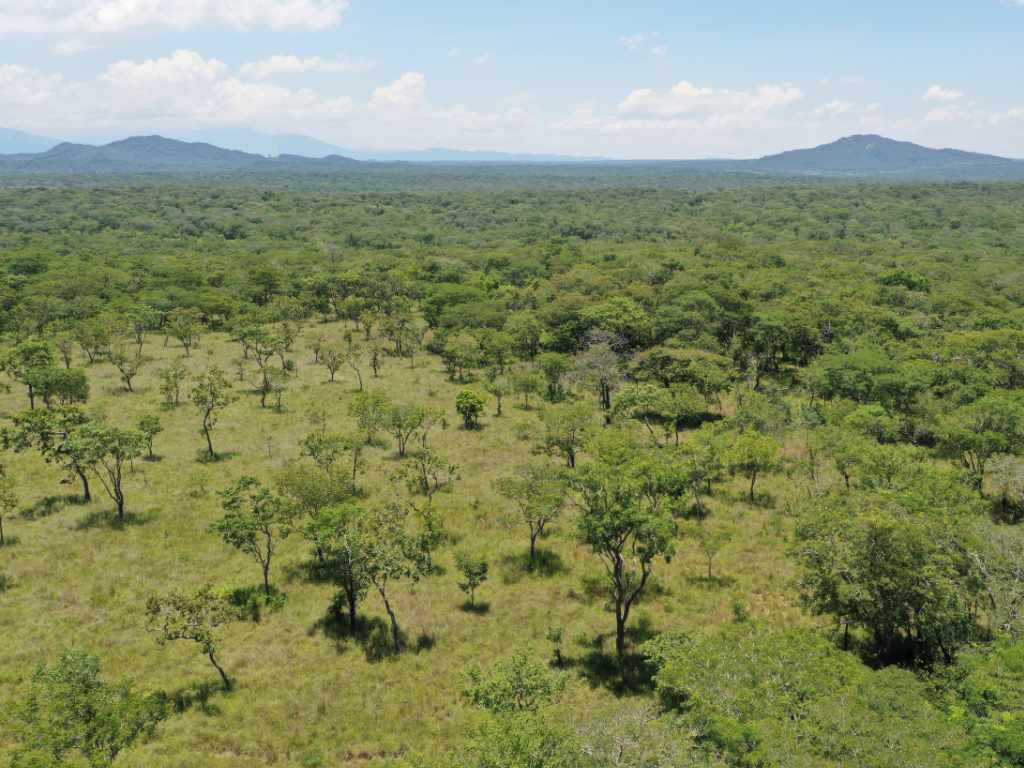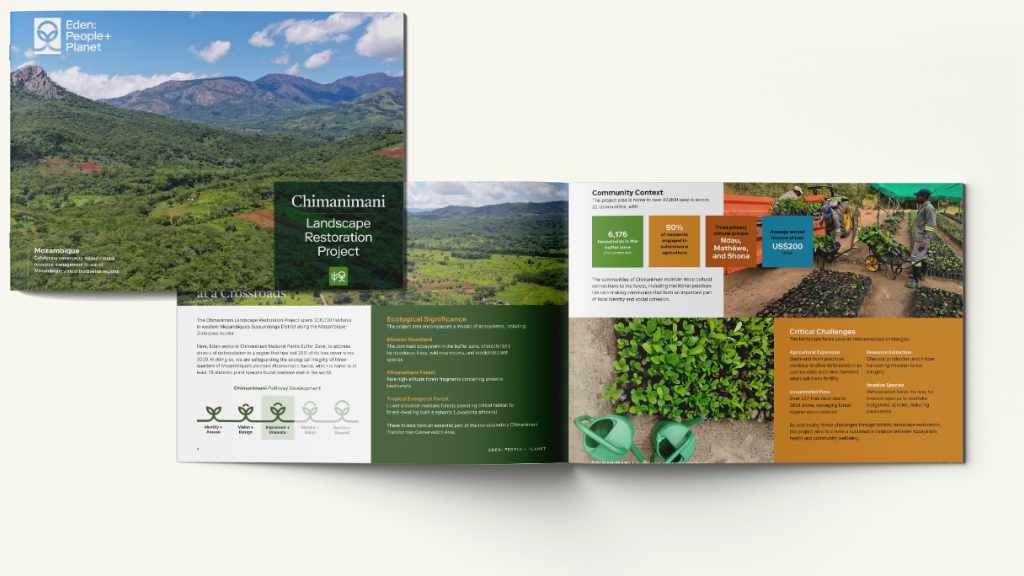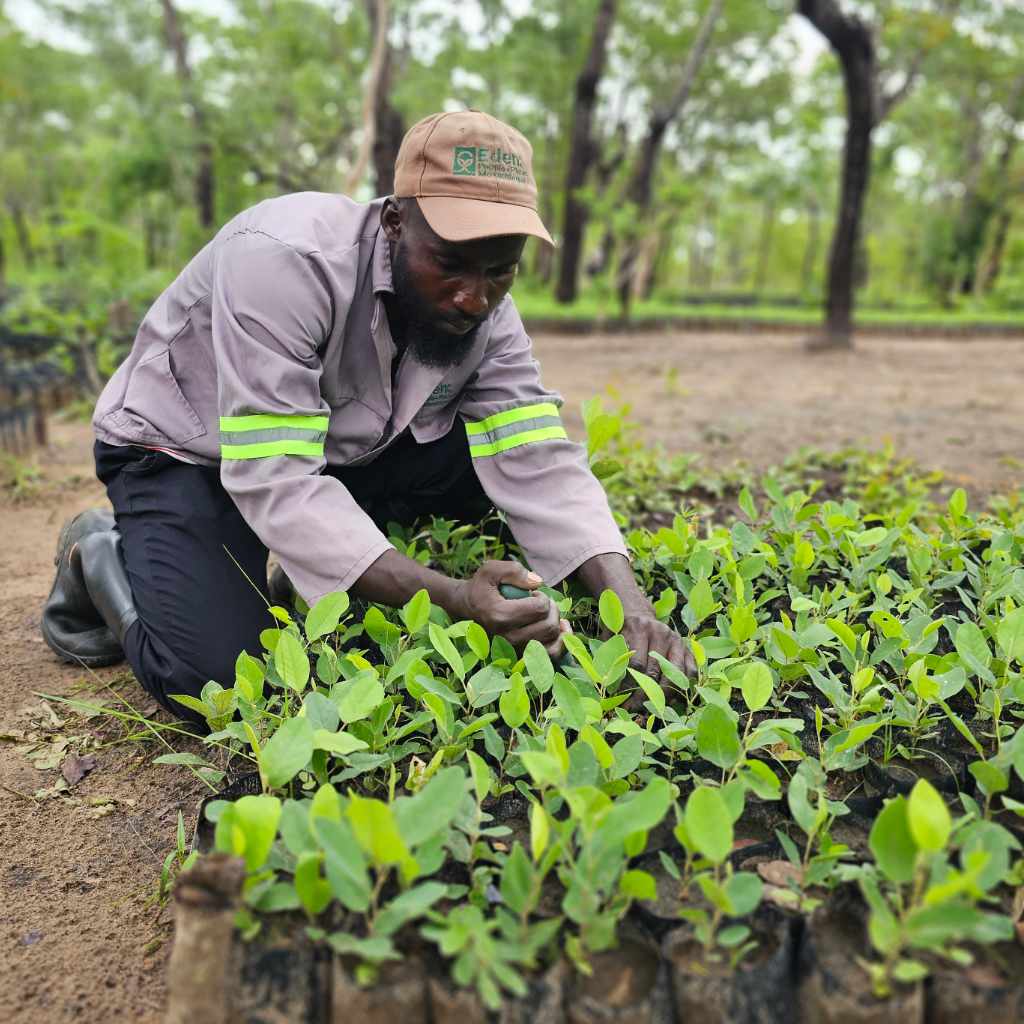
Our Projects
Chimanimani Landscape Restoration Project
Project Overview
The Chimanimani Landscape Restoration Project represents a significant milestone in Eden: People+Planet’s evolution toward comprehensive landscape restoration. While active implementation concluded in 2024 due to strategic focus on carbon-eligible landscapes, this initiative demonstrated Eden’s capacity to restore and protect one of Mozambique’s most ecologically significant regions.
Located along the Mozambique-Zimbabwe border, this 206,000-hectare landscape contains three-quarters of the country’s precious Afromontane forest and 78 endemic plant species. The project successfully planted 863,429 indigenous trees across 1,267+ hectares, established 5 community nurseries, and employed 349 community members while addressing drivers of deforestation that caused 29% tree cover loss since 2000.
This foundational work created valuable frameworks for stakeholder engagement, restoration methodologies, and community partnerships that directly inform Eden’s current carbon project development across similar African landscapes. The comprehensive Project Design Document and established relationships provide strong foundations for potential future carbon-eligible initiatives in the region.
Ecosystem
The Chimanimani landscape’s ecosystem mosaic provided valuable insights for Eden’s carbon project development. The project area encompassed Miombo woodland dominating the buffer zone, rare Afromontane forest fragments harboring 78 endemic plant species, and tropical evergreen forests supporting one of Mozambique’s highest-altitude elephant populations.
During the project’s Vision + Design phase (completed 2024), comprehensive ecological assessment documented key challenges including agricultural expansion, uncontrolled fires (237+ recorded in 2024), unsustainable resource extraction, and invasive species. This baseline data and the project’s successful engagement with 48 stakeholders across 18 communities created proven methodologies for addressing ecosystem fragmentation.
As part of the transboundary Chimanimani Conservation Area, this work demonstrated Eden’s capacity to restore landscape connectivity while supporting both biodiversity and community needs – experience that directly informs current carbon-eligible project development in similar ecosystems.
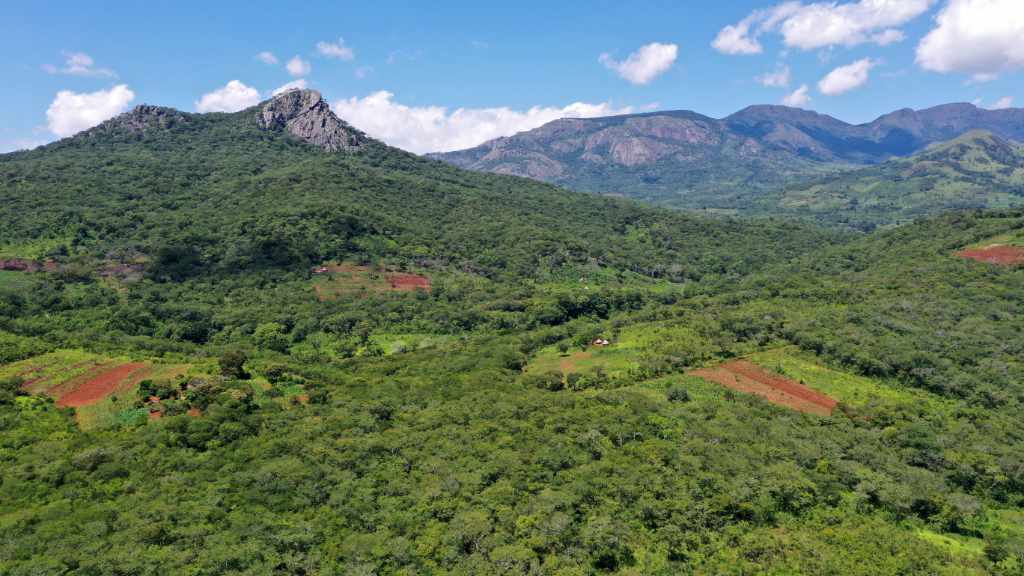
| Stat Label | Stat Value |
|---|---|
| Total Project Area | 206,000 hectares |
| Communities Engaged | 22 communities (42,000+ people) |
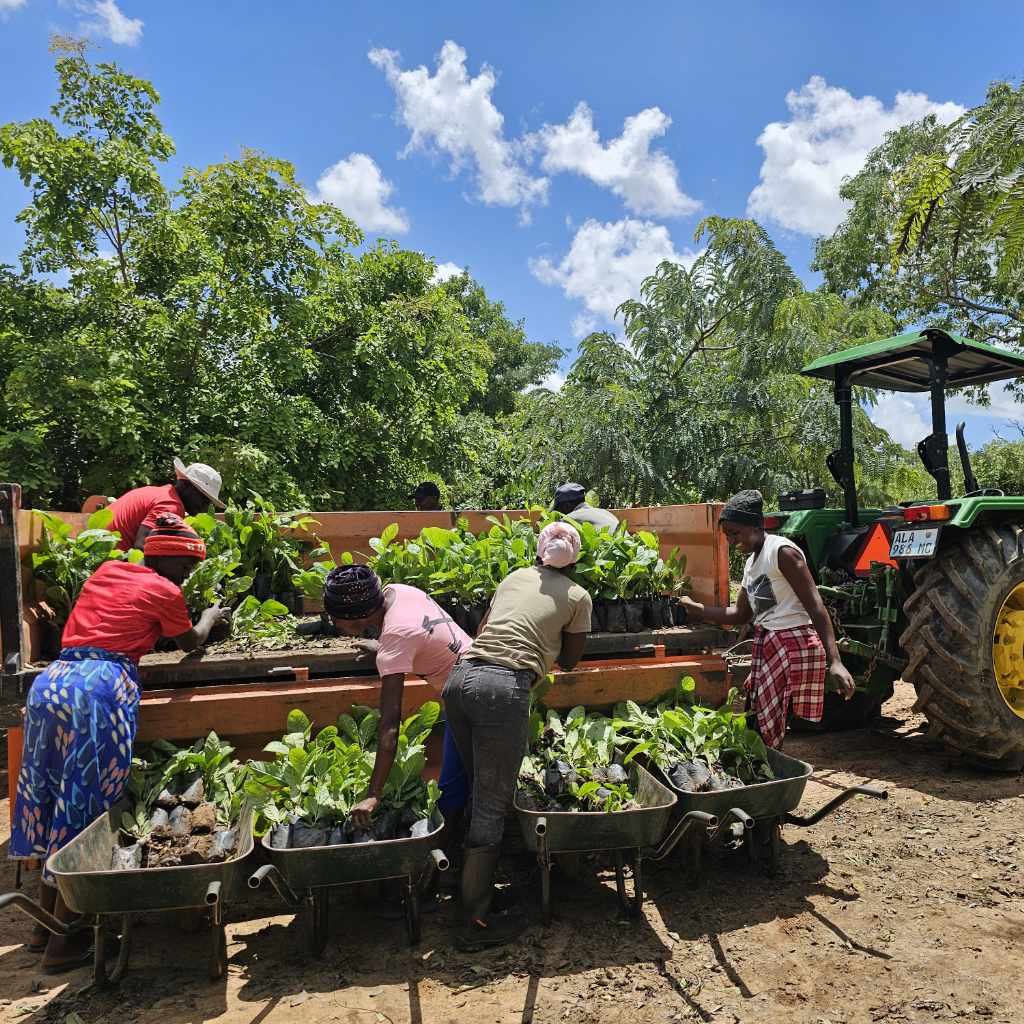
Community
The project area encompassed approximately 64,000 people across 22 communities, with 41,000 residing in the buffer zone. These communities, predominantly from the Ndau, Mathéwe, and Shona cultural groups, maintained deep cultural connections to the forest, including traditional practices like rain-making ceremonies that formed an important part of local identity and social cohesion.
With 90% of residents engaged in subsistence agriculture and average annual household income of US$248 (2022), these communities depended directly on landscape resources for livelihoods. The project successfully demonstrated Eden’s capacity to engage communities in sustainable resource management approaches, with 48 stakeholders across 18 communities participating in project design.
While implementation concluded after the Vision + Design phase, the project’s accomplishments in facilitating community land rights registration and strengthening Natural Resource Management Committees provided valuable experience for developing future carbon projects. This collaborative approach established a proven model for ensuring restoration activities reflect community priorities and traditional knowledge while creating sustainable economic opportunities.
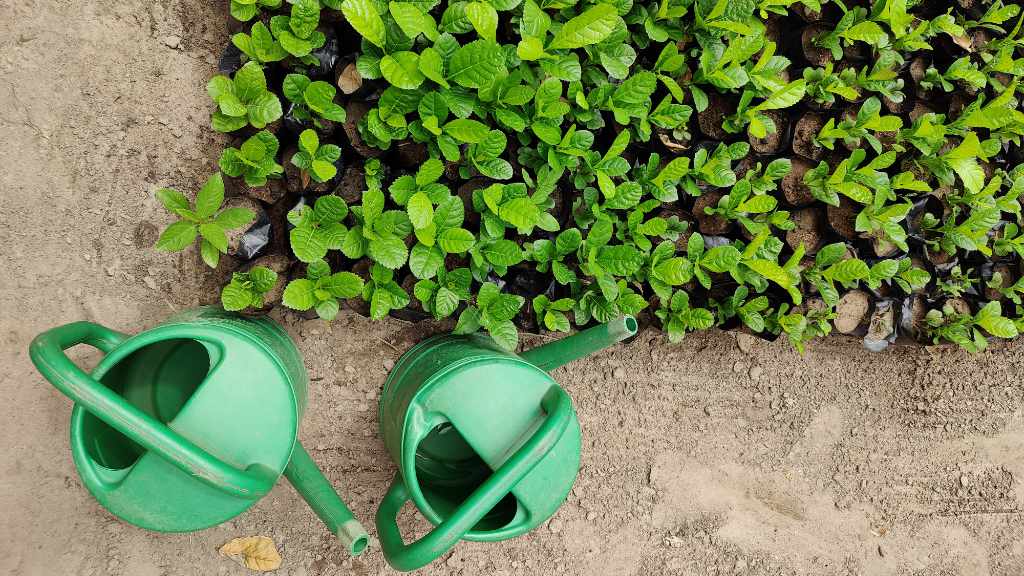
Technical Approach
The Chimanimani project demonstrated Eden’s capacity to implement sophisticated restoration techniques, providing valuable lessons for carbon-eligible landscapes:
Indigenous tree planting proved successful, with 863,429 trees of 71 species planted across 1,267+ hectares. Applied nucleation methods were validated through the establishment of “forest islands” that accelerated natural recovery by attracting seed-dispersing wildlife and creating favorable microclimates. Farmer-Managed Natural Regeneration showed promise for cost-effective restoration of degraded farmland.
The project confirmed Millettia stuhlmannii (Panga panga) as a key species, documenting its multiple benefits including nitrogen fixation, wildlife habitat provision, and sustainable harvesting potential through coppicing.
Implementation followed a structured approach beginning with comprehensive baseline assessment and planning. Five reference forests were successfully identified and documented, establishing scientific baselines applicable to future carbon project development. While active implementation concluded with Eden’s strategic shift, these methodologies and ecological data provide valuable foundations for carbon project development in similar ecosystems.
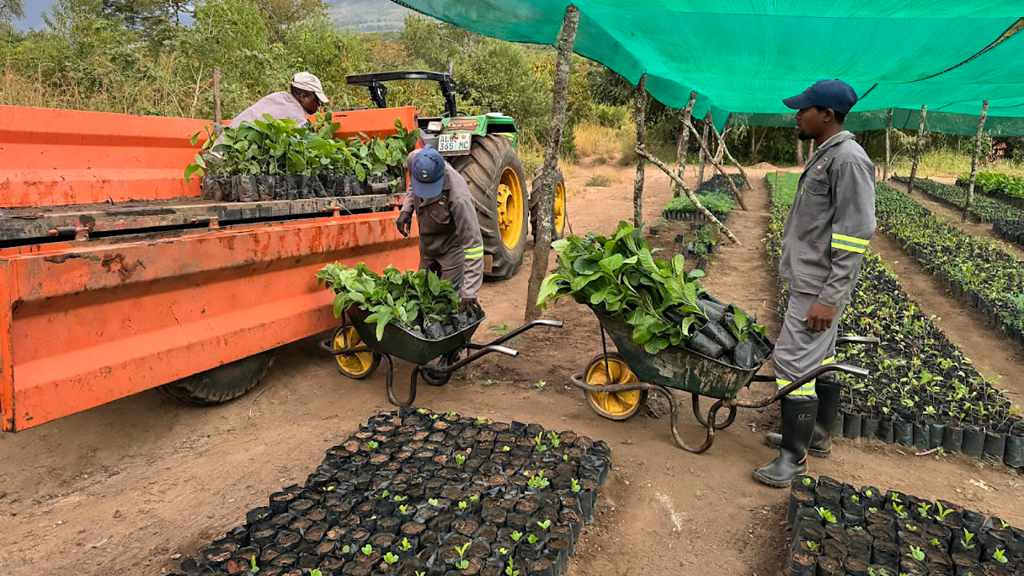
Progress and Impact
The Chimanimani project’s Vision + Design phase demonstrated Eden’s capacity to establish foundations for landscape-scale restoration. Before transitioning to carbon-eligible landscapes, the project achieved significant milestones by planting 863,429 indigenous trees of 71 species and bringing 1,267+ hectares under restoration. Five community nurseries were established, employing 349 local community members.
The project’s comprehensive stakeholder engagement approach, which involved 48 stakeholders across 18 communities, created a replicable model for future carbon project development. The completed Project Design Document, with its validated theory of change and monitoring framework, provides valuable documentation for similar ecosystem initiatives.
Key infrastructure developments included an off-grid seedbank for biodiversity preservation and detailed mapping of 2,965 hectares for potential restoration. Strategic partnerships, particularly with Micaia Foundation, established frameworks for sustainable value chains that could support future carbon project community benefits. These accomplishments create a strong foundation for developing carbon-eligible projects in similar landscapes.
